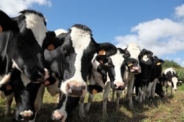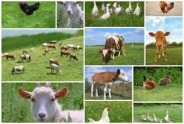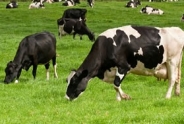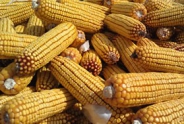Increasing Milking Frequency and Udder health
Jackson Wright, Dairy
Northwest New York Dairy, Livestock & Field Crops

Intuitively one would suspect that because frequent milking increases exposure to the mechanical forces applied during milking it also would increase the occurrence of "inverted" teat ends, or teat end hyperkeratosis, and risk for clinical mastitis. However, when considering the effects of frequent milking on udder health one should recognize that teat end hyperkeratosis is probably a natural response to milking as some degree of teat end hyperkeratosis occurs in a significant proportion of animals in all herds. Moreover, only very severe teat end hyperkeratosis is associated with an increased risk of clinical mastitis and mild to moderate teat end hyperkeratosis actually decreases the risk for SCC >199,000 cells/mL when compared with "normal" teat ends.
Maybe more importantly, previous reports investigating the effects of increasing milking frequency during early lactation have indicated that frequent milking has either no effect on SCC or even decreases SCC. In addition, when comparing a traditional 2X/d milking to cows on automated milking systems, animals on automated milking systems often visit the robot more frequently without exhibiting an increase in teat end hyperkeratosis.
Finally, when considering the effects of frequent milking on udder health, remember that when calves are allowed to nurse they feed an average of 7 times per day for over 45 min/d. Therefore, management strategies such as 3X or 4X milking during early lactation appear mild at best when compared to the natural feeding interval of the calf. What appears to be a more important factor than milking frequency on teat end health is proper maintenance of the milking equipment. This includes ensuring that vacuum pressure is correct and that the automatic take-offs are set on a moderate setting to prevent over-milking.
Upcoming Events
2026 Forage Congress
March 12, 2026
Nunda, NY
Due to the unprecedented winter storm that recently impacted travel conditions across the region and U.S., combined with extreme cold temperatures and associated safety concerns, Forage Congress was postponed out of an abundance of caution. This decision was made with the safety of our participants, speakers, staff, and venue partners as the highest priority.
We are pleased to officially announce that Forage Congress has been rescheduled for Thursday, March 12, 2026, and will be held at The Nunda Ranch as originally planned.
Address: 2278-NY 436, Nunda, New York 14517
Sponsorship opportunities, vendor participation, and event registration are now open. We are excited to reconvene this important educational program and look forward to welcoming producers, industry partners, and speakers for a full day of applied, research-based forage systems programming.
From Dry to Fresh: Transition Cow Management Training
March 12, 2026
Albion, NY
This is a 1-day hands-on training in transition cow management offered in English and Spanish.
TENTATIVE- 2026 Dairy Feeder School - November 2026
November 11 - November 12, 2026
Dates are TENTATIVE for 2026! More Details to Come!
Join the Regional Dairy Specialists for a one day on-farm training for dairy farm feeders. The training will be offered in English and Spanish and will feature stations with hands-on activities and demonstrations.





